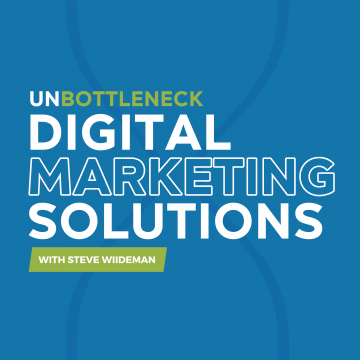Don’t believe everything you read on the internet. Despite the web being a powerful communication tool and research platform, there’s also a lot of internet junk floating around.
Remember those internet memes about toilets flushing clockwise in Australia? Or how the Mayan calendar could predict the end of the world?
Yep, it turns out these were just lies that appeared online (though ones that quickly spread like wildfire).
Google to the rescue!
Google could be soon introducing a new model that measures the ‘trustworthiness’ of a page – instead of its reputation on the internet, namely links.
The new system would count the number of facts within a page, and then determine its value based on whether the information presented was correct, and useful to its readers.
Let’s face it: there’s already a lot of misinformation on the web, so the proposed changes could signal a shift in the way websites source their information and present their facts.
But what will this mean for the small business owner, or blog user trying to improve their position on the SERP?
What Is The Knowledge Graph?
In 2012, Google introduced the Knowledge Graph. These help to determine the info boxes that appear on the right-hand side of the SERP when you search for a person, place, or other search terms.
The Knowledge Graph has already proved successful for the company, and is estimated to predicted nearly 120 million web pages and well over 5 million websites.
It’s the latest in a long line of changes to Google’s search algorithms in recent years, where a greater emphasis has been placed on authorship and credibility – a far cry from the keyword stuffing and other practices used in the early days of SEO.
Telling the world who you are, and what you stand for, has been useful when trying to increase the rankings of your website, especially if you assign content to a Google+ account.
It seems search users are becoming more savvy when searching for truthful information on the web – and Google is simply reflecting this.
Concepts like authorship, references, and credibility all play a part in whether a user visits your page. The new changes will bring these concepts further to the fore.
Facts Vs Links
As it stands, Google’s algorithms measure incoming links to a page as a measure of their quality. These results are then reflect on the SERP. That’s the way it’s always been.
Pages that are linked to from other sources – especially those deemed as being ‘credible’ – often outperform those which don’t have as many of these links. But now Google could place even more emphasis on credibility, and prevent websites that include misinformation from having a prominent position on their search page.
The score that Google would use to determine this credibility is what’s known as the Knowledge-Based Trust Score. Using clever software, websites will be checked against Google’s Knowledge Vault – a virtual database of facts from the world wide web. If the internet agrees that a fact is really a fact, this will be determined as the ‘truth’.
Websites containing information about the truth will considered as credible, and their web rankings will reflect this. Conversely, websites that have contradictory or false information could see their websites fall down the results page.
All of these proposed changes are included in a new document released by Google.
The paper states that when a web page doesn’t include enough facts, the search engine could rely on other pages from the same site to determine its credibility.
This could be big news for online marketers, some of which might have to go through each of their pages with a fine-tooth comb to check all of their facts and make sure their website is trustworthy enough so as to not jeopardize their search rankings.
Impact
Not all websites will have to worry. There will be plenty of niches out there that won’t be affected by the planned changes (that’s of course if they even come to fruition in the first place).
Some websites don’t include facts at all, and these won’t be measured in Google’s knowledge database. However, there will be concerns for many.
1. Big Shift In SERPs Incoming?
Once concern over the proposed changes is how the new algorithm could affect the positions of websites that currently rank high on the SERP.
Take Wikipedia for example. The platform thrives on outbound and inbound links from authority sources, news articles, and journals. But who’s to say that this information is objective and trustworthy?
Especially when it comes to controversial subjects such as science, religion, and politics. Wikipedia pages have long-been SEO gold because the content is (for the most part) well-sourced, lengthy, and detailed. But if there’s to be a bigger shift on credibility, will the changes have an effect on their search rankings?
2. Non-Verifiable Information
Then there’s all the other information that Google takes into account when determining its search rankings. But what about the exceptions:
- What about information that can’t be verified?
- Highly controversial topics and claims that people just can’t agree on?
- Will social signals play less of a role when their bots crawl the net?
- What about two similar websites that both include information that the search engine determines to be factually accurate?Which one will rank higher?
It’s questions like these that have many content marketers worrying about the future of their rankings.
In Conclusion
Whether a fact is accurate or not is extremely tricky to determine.
If Google plan on incorporating their Knowledge Graph into their search results, this – especially when many facts really aren’t that clear cut – many websites will face a challenge.
Online brands will be wanting to make sure that their sites are authoritative enough so that other websites can use them as a citation. In this circumstance, links will remain important in the years ahead.
Not only that, content still matters. Small businesses that specialize in a particular niche (medicinal or healthcare products for example), will need to make sure that the information they present to the public (product claims, ingredients, health benefits etc.) are 100% factual and accurate.
Well, factual and accurate depending on what Google determines that to be.




